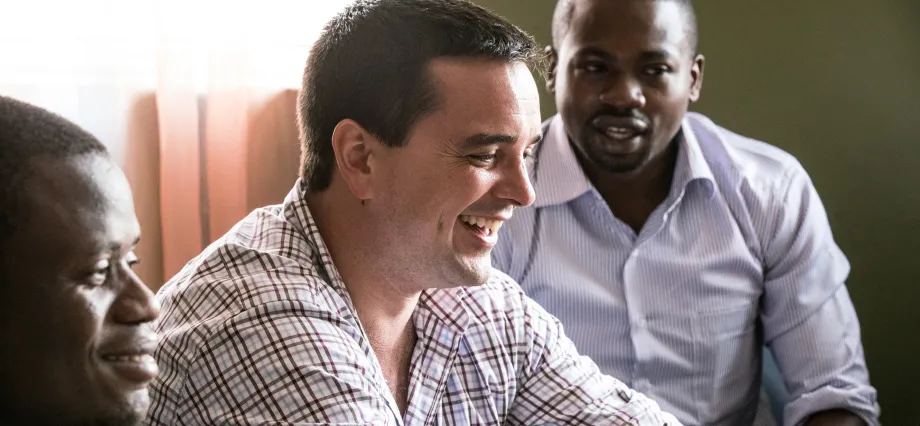
Photo by Nichole Sobecki.
Stanford Medicine Scope - June 22nd, 2017 - by Beth Duff-Brown
Mike Baiocchi, PhD, grew up in a family of nurses and passionate public health advocates. He says a liberal can-do attitude was baked into his DNA.
So when he came out as a math guy to his family, he told me in an interview, Baiocchi knew he had to apply his PhD in statistics in ways that would improve global health.
“That’s what I specialize in: messy, real-world data where you try and prove the cause-and-effect relationship,” said Baiocchi, an assistant professor of medicine at the Stanford Prevention Research Center.
His latest messy, real-world data project is a study on a massive rape-prevention program in Kenya. As I described in a recent online story:
In the slums of Nairobi, where sexual assault is as commonplace as it is taboo to discuss, Baiocchi is working with a team of Kenyan counselors teaching kids that no means no.
The girls learn to shout — ‘Hands off my body!’ — and throw an elbow jab or good kick to the groin. The boys are encouraged to stand up for the girls and fight against the social traditions that have normalized rape.
Perhaps most effectively, the children learn how to talk themselves out of precarious situations, use clever diversions and speak loudly when faced with potential attackers, through a series of role-playing exercises that promote healthy gender norms.
The behavioral intervention appears to be working. Observational studies have inferred that the incidence of rape has dropped dramatically — perhaps even by half.
But how do those who are devoted to protecting these girls from sexual violence prove to themselves and their donors that their efforts and dollars are making a difference?
That’s where Baiocchi comes in.
Baiocchi and his team have designed a closed-cohort study that will track the behavior of about 5,000 girls and 1,000 boys enrolled in the No Means No Worldwide project, which is training 300,000 girls and boys in Kenya and Malawi to prevent rape and teen pregnancy.
Now, this innovative approach to applying math to a real-world problem won him Stanford Health Policy’s Dr. George Rosenkranz Prize for Health Care Research in Developing Countries. The annual $100,000 prize goes to promising young Stanford researchers who are investigating ways to improve health care and health policy in developing countries.

